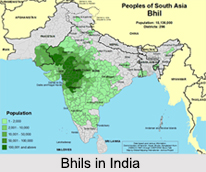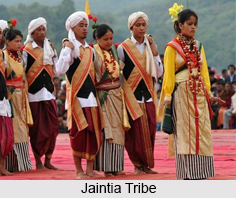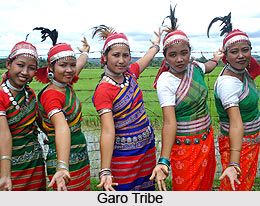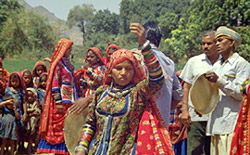The Sibis seem to have been a very ancient people. They were a petty tribe occupying some tract in the Western Punjab from where they seem later to have migrated or sent offshoots south-westwards to Sind and Rajputana and southwards as far as the Chola country. The Sibis are probably eluded for the first time in the Rig Veda as the Sivas and the Sivas were the same people as Sibis. They are grouped together with four other minor tribes, viz. the Alinas, Pakhtas, Bhalanasas and Visanins, who were all defeated by the combined army of King Sudas. But even after the defeat the Sivas or the Sibis had maintained their independent existence for some considerable time.
It has been recorded in history that the Sibis had descended from those who belonged to the expedition of Herakles. The Sibis used to dress in skin and used to carry a cudgel. An earlier reference of the Sibis in the Aitareya Brahmana has said that Amitratapana was the king of the Sibis. A place called Sivapura or `town of the Sivas` has also been mentioned by Panini. From various historical references it can be said that the Sivas or Sibis were a people inhabiting the Shorkot region in Jhang in Punjab, lying between the Iravati and the Chandrabhaga, and therefore included in the northern region or Uttarapatha.
History states that the Sivas or Sibis seem to have migrated, southwards to Rajputana. It is difficult to say exactly when this movement took place, but early references to a geographical location of the tribe other than in the Punjab are found in the Jatakas and in the Mahabharata. The Jatakas has mentioned a Sivi king and his country with two of its cities namely the Aritthapura and Jetuttara. Several coins issued by the Sibis also testify the fact that Sibis had a stronghold in the region of Chittore.
From the historical accounts mentioned it can well be said that Sibis had formed a gana-rashtra or some sort of republican state. But at the same time it could be said that the Sibis were not republican in the absolute sense of the term but it can easily be said that they had democratic institutions.
The Sivas or Sibis were intimately associated with the Usinaras, who are assigned by the Aitareya Brahmana to the Madhyadesa or `Middle Country`, together with the Kurus, the Panchalas, and the Vasas or Vatsas. It is, therefore, likely that the Usinara country was at one time the habitat of the Sibis. According to the tradition as recorded in the epics and Puranas, Sivi was one of the five sons of King Usinara, each of whom founded a city. The city of Sivi was known as Sivapura. Sivi had four sons who came to be known as Sivis, giving their name to the tribe to which they belonged. It has also been recorded in history that Sivi Ausinara not only originated the Sivis in Sivapura but had extended his conquests westwards, founded through his four sons the kingdoms of the Vrsadarbhas, Suviras (or Sauviras), Kekayas, and Madras, thus occupying the whole of the Punjab except the north-western corner.
In the Mahabharata the Sibis have been grouped with the foreign tribes namely the Sakas, Kiratas, Yavanas and Vasatis. Moreover in the Dasakumdracaritam it has been referred that Sibis had a settlement on the banks of the Kaveri River. The southern Sibis, are identified with the Chola ruling family. In fact it has been said that the Sivi country of the south may be identical with the Sivika country which is placed among the southern countries by Varahamihira in his Brhatsamhita.





















